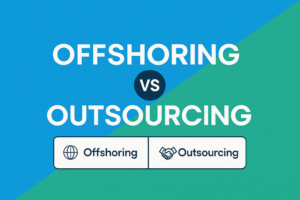To attract talented developers to your startup, it’s important to understand the current landscape and preferences of software developers. The software development industry is rapidly growing, with a projected 25% growth from 2022 to 2032, much faster than the average for all occupations according to the U.S. Bureau of Labor Statistics. This growth indicates a significant demand for developers, making the competition for attracting top talent even more intense.
Developers today are not just looking for competitive salaries; they seek environments where they can grow, learn, and be a part of innovative projects. The most popular programming languages in 2023, such as Python, C, C++, Java, and C#, suggest that developers are interested in versatile languages that offer extensive libraries and frameworks, allowing for diverse application development.
Given these trends, to find skilled developers for your startup, it’s crucial to create an environment that offers more than just a competitive salary. Benefits like retirement contributions, paid time off, and professional development opportunities are important. Let’s explore this in more depth.
1. Salary is Important But Can Vary
Salaries are a crucial factor for professionals in any industry, including software developers. Given the dynamic nature of the tech industry, developer salary expectations can vary significantly. It’s essential to consider that these expectations are often influenced by the developer’s local market conditions. For startups, balancing budget constraints with competitive compensation is key.
For instance, the salary expectations for a Python developer in Nevada would differ from those of a developer in New York due to the cost of living and market demands in these regions. Similarly, if a startup based in a location with a lower cost of living, like Dothan, Alabama, aims to hire a specialist such as a Blockchain developer from a high-cost area like San Francisco, the company should be prepared to match San Francisco salary levels, even for remote positions.
The increasing expectation among developers to have the option to work remotely is also important to consider. Remote work not only meets the preferences of many developers but can also be advantageous for your company in terms of productivity and cost-effectiveness.
2. Remote Work: A Key Perk for Developers
The flexibility of remote work is a significant advantage in attracting top developer talent. Since much of their work is inherently digital, developers can effectively work from any location.
Offering the option to work remotely can be a major draw for candidates, enhancing work-life balance and potentially leading to cost savings in salary negotiations.
Moreover, numerous studies have demonstrated that remote teams can be as productive, if not more so, than those working in the office. The added perk of comfort, such as the casualness of working in pajamas, can also contribute to a more relaxed and conducive work environment.
This approach not only appeals to potential hires but also aligns with modern work trends, making it an attractive proposition for both employers and employees.
3. Seek Learners Over Expertsearn
While competing with giants like Google or Adobe for ‘the best’ software developers is your goal, you should value individuals who are eager to learn and passionate about technology.
When building a team, the focus should be on cultivating a team of curious, dedicated individuals. Such team members bring a growth mindset and adaptability, essential qualities in the ever-evolving tech landscape.
They are often not demanding huge salaries are more open to new challenges and can evolve with the company’s needs.
Investing in these individuals through training and mentorship can yield a committed and versatile team. It’s about harnessing potential and fostering a culture of continuous learning and improvement.
4. Nurturing Developer Talent and Creativity
This approach allows developers to explore personal interests or contribute to community projects, enhancing skills and creativity. Such policies not only uplift team spirit but also lead to new product development, showcasing a startup’s commitment to both individual growth and technological advancement.
This balance of personal and professional development can be a key factor in attracting talented developers to a startup. Make sure to mention it upfront.
5. Health Insurance Coverage is a Key Factor
Over the past 50 years, employer-provided health insurance benefits have become the norm, and with the recent passage of the Affordable Care Act, also known as Obamacare, many employers are now required to provide a certain level of coverage. Even if you’re not one of those employers, you need to know that developers are looking for employers who are prepared to offer great health insurance benefits, especially now that all US citizens are required to maintain coverage. This means that offering health insurance coverage, even for remote workers, is a great way to attract and retain top remote developers.
If you’re seeking to hire remote employees from outside of the United States, you may not need to provide healthcare, but if you wish to nonetheless, you’ll need to research the laws in the country or countries of these employees to ensure that your health insurance offerings will be valid. If this is the case, consider consulting with an attorney who specializes in international labor law.
By aligning your startup with these trends and preferences, you can create an attractive proposition for talented developers looking for dynamic and growth-oriented work environments.
And if you need help in hiring remote developers, feel free to reach out to us.
At Distant Job, we specialize in helping clients hire developers online for a variety of projects and positions. To learn more tips to successfully attract the right remote worker for your company, visit our blog.





